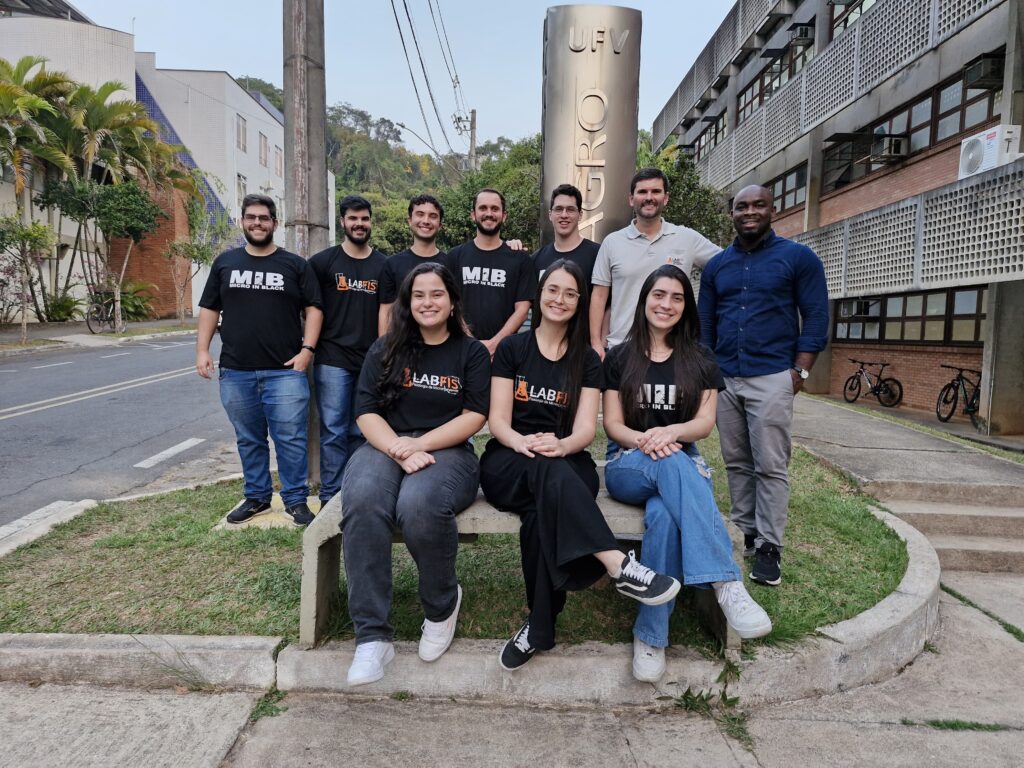Professor Eugene Fletcher, from Carleton University in Canada, was welcomed by the Graduate Program in Agricultural Microbiology (PPGMBA) of the Federal University of Viçosa (UFV), for his first visit to Brazil. Eugene conducts research into yeasts and, since the beginning of 2024, has been working in partnership with Professor Wendel Silveira, coordinator of the UFV’s Microorganism Physiology Laboratory and the PPGMBA. The visit to Brazil formalizes the joint work of the two teams, with funding from Global Affairs Canada’s Faculty Mobility for Partnership Building Program, created to finance academic activities of Canadian professors in Latin America and the Caribbean.
“I first met Wendel when we did a post-doc in the same lab in Sweden. Since then, we’ve been interested in working together. Recently, when the opportunity arose to apply for the Faculty Mobility Program, I thought it was the perfect time to put this idea into practice. Our countries are both very interested in converting agricultural and dairy waste into valuable chemicals,” says Eugene. In Canada, the professor heads a research group specialized in yeast engineering for the production of biochemicals that can be used as biofuels and preservatives in animal feed. “While we share some common research interests, each of our groups brings unique expertise to the table. Both Professor Wendel and I focus on fermentation using yeast—the microorganism used to make beer and bread—but his group works with different types of yeast. Also, his group has a lot of experience in developing bioinformatics tools to discover new yeast genes.”
Eugene’s expectation is that the combination of interests and knowledge can help solve difficult scientific problems that have piqued the interest of scientists in Canada. For example, for our research collaboration, we are working on developing yeast strains that can convert dairy wastes and by-products into ethanol, organic acids for making bioplastics, and lipids. Wendel’s lab is using their bioinformatics platform to screen hundreds of yeast DNA sequences to find new genes that make yeasts able to consume lactose, the main sugar found in dairy by-products. My lab at Carleton University will then test these genes and select the most effective one for engineering yeast to consume lactose more efficiently” he explains.
During his four-week stay in Brazil, Eugene offered a special course – “Yeast Biotechnology: Engineering yeast cell factories” -, presented a seminar to the entire academic community, and took part in several working meetings with Professor Wendel’s team and other potential partners. “It was a very productive experience. I was very pleased with the students’ engagement and response during the course and in the many other exchange opportunities we had. I want to open discussions about the possibilities of collaborating with other groups in Viçosa, expanding our activities here.”
Eugene’s project is expected to last two years, until 2026. In the coming months, back in Canada, the professor intends to continue working with UFV, promoting student exchanges between the two countries and working to secure new funding. “I hope that this visit will result in new collaborations and publications that will attract attention and help us secure more funding, benefiting research at both universities.”


Leave A Comment